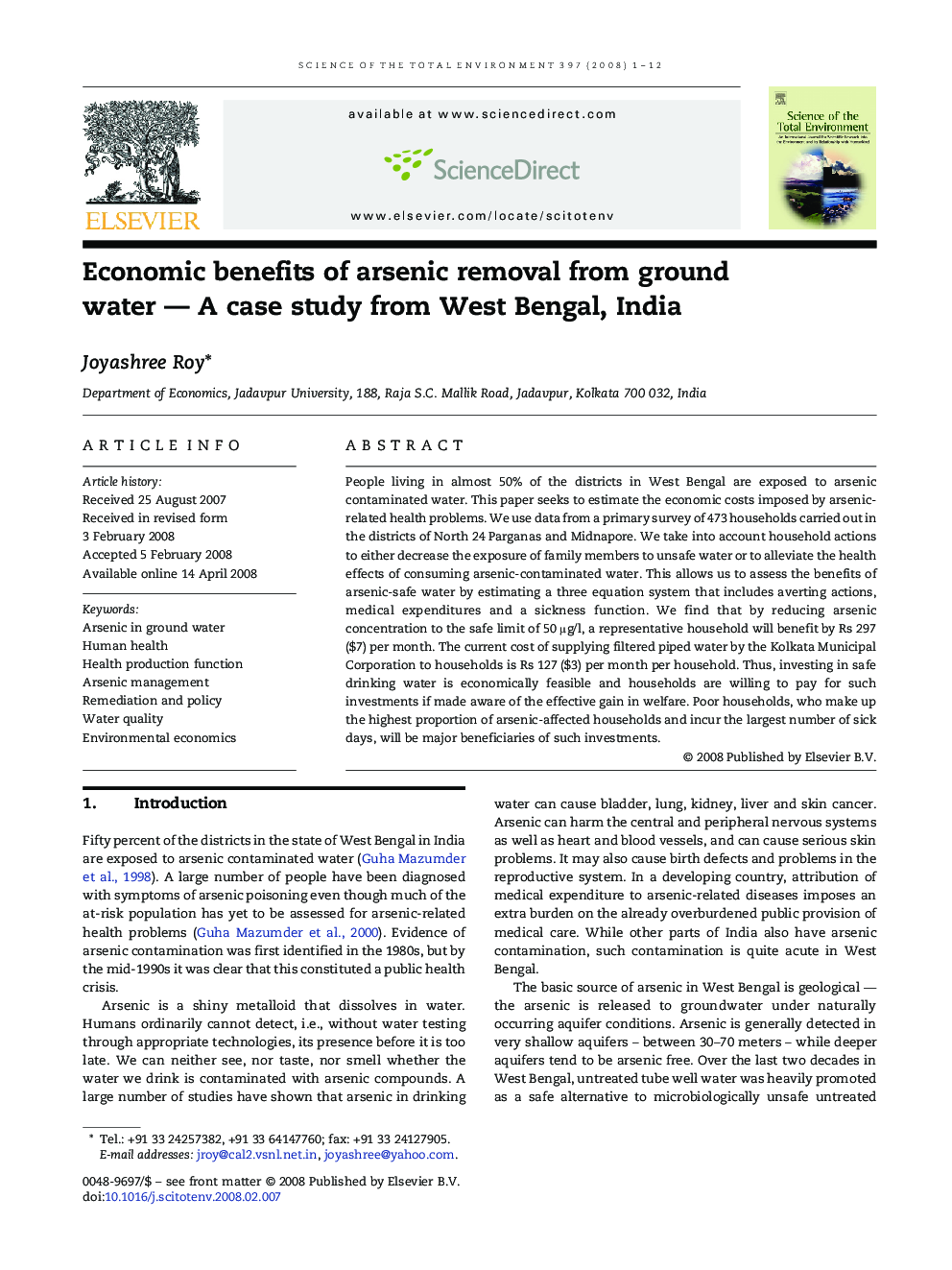| کد مقاله | کد نشریه | سال انتشار | مقاله انگلیسی | نسخه تمام متن |
|---|---|---|---|---|
| 4431605 | 1619922 | 2008 | 12 صفحه PDF | دانلود رایگان |

People living in almost 50% of the districts in West Bengal are exposed to arsenic contaminated water. This paper seeks to estimate the economic costs imposed by arsenic-related health problems. We use data from a primary survey of 473 households carried out in the districts of North 24 Parganas and Midnapore. We take into account household actions to either decrease the exposure of family members to unsafe water or to alleviate the health effects of consuming arsenic-contaminated water. This allows us to assess the benefits of arsenic-safe water by estimating a three equation system that includes averting actions, medical expenditures and a sickness function. We find that by reducing arsenic concentration to the safe limit of 50 µg/l, a representative household will benefit by Rs 297 ($7) per month. The current cost of supplying filtered piped water by the Kolkata Municipal Corporation to households is Rs 127 ($3) per month per household. Thus, investing in safe drinking water is economically feasible and households are willing to pay for such investments if made aware of the effective gain in welfare. Poor households, who make up the highest proportion of arsenic-affected households and incur the largest number of sick days, will be major beneficiaries of such investments.
Journal: Science of The Total Environment - Volume 397, Issues 1–3, 1 July 2008, Pages 1–12